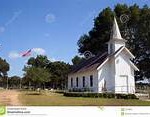By Joe Shaw II
One of the most common questions I have been asked over the years is what brought me to Brady. Brady is fifteen miles from the geographical center of Texas; no one gets here on accident. The closest city of 50,000 is seventy-five miles away, and the closet metropolis is 130 miles away. I have compiled a list of the good, the bad, and the ugly of pastoring in a rural setting. Sadly there are hundreds of small rural communities that have no church or preaching point. There are six counties that border our county, but the closest UPCI church is fifty miles north. There is no other church within an eighty-mile radius in any direction. There are at least sixty thousand unchurched people in this area. Preachers often see no way these communities can support a church, but they can if the right people go.
The challenges that rural pastors face are unique but conquerable if handled correctly. Here are some of the challenges:
Travel. Rural pastors should be prepared to miss a lot of camps, conferences, and organizational meetings because of travel times and distances. We attend very few district-related events; distance simply will not allow it. The church also misses some events. It is impossible for our youth group to travel 400 miles round trip on a Friday night. Hospital calls can be a 300-mile round trip, although one can use these opportunities to enjoy the benefits of a larger town.
Fellowship. You and your spouse had better like each other! It can be very lonely in rural settings. If you are a person who needs constant fellowship and entertainment, stay in the city. We have no friends in ministry with whom we fellowship on a weekly or monthly basis. Distance, once again, prohibits this type of fellowship. You learn to involve your family, and you make some good friends with town people.
Disarray. Many times there are three things that will be in disarray when you accept a rural pastorate: (1) building and parsonage, (2) church finances, and (3) the people’s confidence in the ministry. All three of these are tied to the simple fact that many times rural churches are used as starting points for young ministers or retirement destinations for older ministers. Preachers don’t have a tendency to stay. Consequently, there frequently is no long-term vision, and the people don’t trust ministers. In their minds you will be leaving as soon as a better model comes around. When we arrived in Brady the average pastoral tenure had been eighteen months over the previous sixty-five years. It took about seven years for our church to realize our commitment to them was legitimate.
Older congregation. Young people need vision, and let’s face it, they like activities and fellowship. Older saints are very faithful and provide stability, but they do not produce numerical growth. You must have youth for growth. Young people are vital for changing the mentality of rural churches. However, there is a constant outflow of youth to colleges and out-of-town jobs.
Finances. In many rural settings jobs are scarce and wages can be low. However, this never discouraged me because I always looked at the larger denominational churches as an example. If they can run in the hundreds in a small town, then so can we. Also, many things are less expensive in rural settings, and people are often willing and able to do the work that might be hired out in a city church. There also are many advantages to pastoring a rural church. It is not complicated to minister in rural areas. Here are some observations about ministering effectively in a rural setting:
Ministry outside the church building. People come to know you as “the preacher.” I am the pastor of Brady, and I have counseled, helped, buried, and married people of all walks of life and from various denominations. In a rural setting this is outreach, and you cannot miss these opportunities. This is the way you will win the hearts and souls in a rural setting. They like to see you in town. You have to stop and speak to people. You have to be interested in their land, their ranches, their animals, and their pick-ups.
Credibility. You will be known quickly, so a good reputation is essential. Work hard, pay your bills on time, speak and wave to everyone. Otherwise, you don’t have a chance. Rural people are very friendly but clannish, and they must be won by your actions. They like less complicated things, and for the most part, are extremely family oriented. Never try to talk up the city life to them. For the most part, they are suspicious and don’t trust “city slickers,” as they call them. Remember, there is one of you and hundreds of them, so don’t try and change them to your city ways. You must change to their country ways. And for the record, some country people used to live in the city and chose to leave the rat race. They prefer the rural over the urban.
Live life. Build your church around family activities that are natural for the community. We fish, hunt, and do cowboy things here. I have won people to God with a rod-and-reel in my hand. I have gone hunting with people. I have worked on their ranches. I have become one of them. Every fourth Sunday we have family Sunday. Family Sunday consists of one morning service followed by a church dinner of barbeque, homemade ice-cream, and games like washers and horseshoes. They are very family conscious, and will support these activities.
Understand how to use money. There is money in rural areas but rural people tend to be conservative by nature. They see no need for a $5,000 chande-her in the foyer of the church. They see the need for things to be done right and within budget, and they usually are opposed to bank notes. However, they are kind, generous people and will give if you can point out the need. Fourteen years ago our church supported one missionary. They now support around twenty missionaries as well as Tupelo Children’s Mansion.
Relevant worship. Worship styles must reflect the local culture. Our people still like hymnals. Rural churches love singings (evenings of community worship with many different participants and generally no preaching, much like a concert), and I have used these to my benefit many times. They are great outreach tools. Most of our people have not traveled much, so they love missionary services including videos, displays, and testimonies from around the world. Our biggest offerings have been for missions.
Relevant preaching. Rural people often have limited exposure to cultural experiences beyond their locale, and therefore, preaching must be relevant to their life experience. There would be no sense in a city preacher coming to Brady talking about Bentleys, Rolls Royces, or the stock market. They do not relate and many times they resent people talking above them. Good, old-fashioned, and anointed preaching will do the job. And since rural communities are conservative and support family values, you can preach against sin without offending them.
We need preachers who will commit to rural areas. We see the urban ministry of Paul in the New Testament, but we also see the rural ministry of Jesus. While Paul used urban metaphors—fighting, buildings, and competitive games—Jesus talked about farming and fishing. Both are needed. There is a harvest of souls that we need to reach with this gospel. When done in patience the transition to a rural setting is rewarding. Church growth may not be as fast, but it can be steady and strong. There is one more benefit to rural pastoring: it is low-stress. Rural people often say, “We put our own boots on and stomp our own snakes.” They are self-reliant and typically do not require as much maintenance. If they need you they will let you know, but for the most part they are self-sufficient.
I live in the country and own a little land. I watch foxes, wild turkey, and a host of other wild game It is a very relaxing life, and I’m not sure why anyone would not like it out here.
The above article, “The Good, the Bad, and the Ugly of Pastoring a Rural Church,” is written by Joe Shaw II. The article was excerpted from the July-September 2014 issue of Forward Magazine.
The material is copyrighted and should not be reprinted under any other name or author. However, this material may be freely used for personal study or research purposes.



